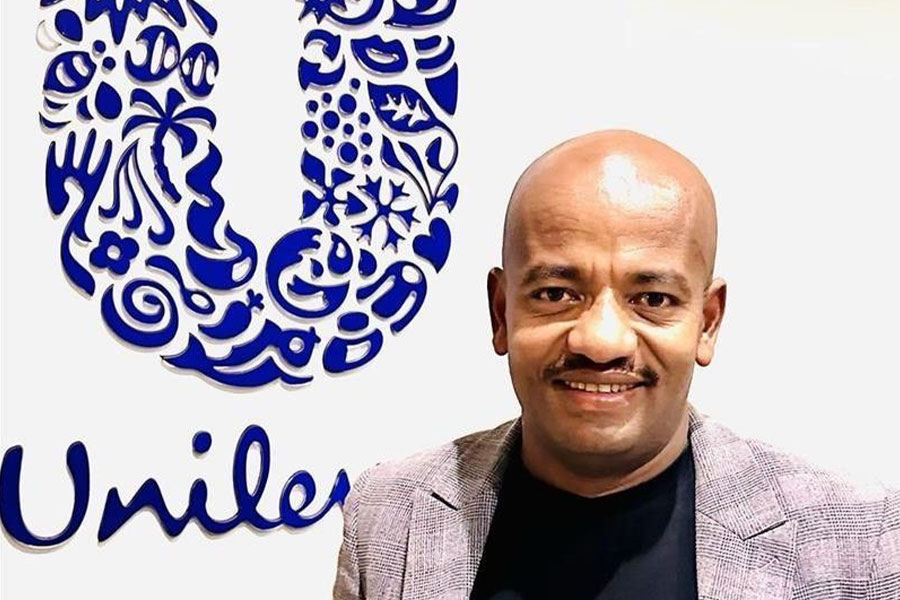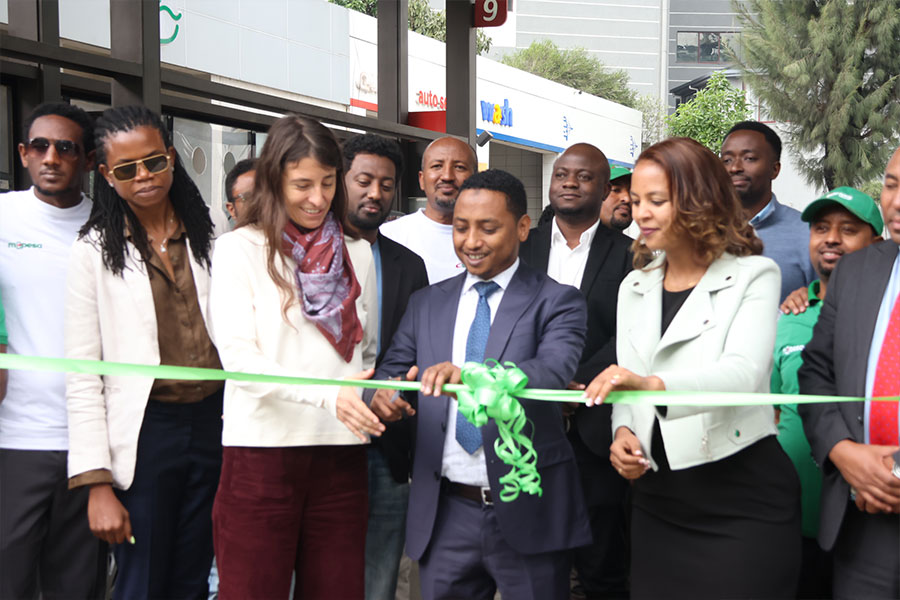
Viewpoints | Jul 13,2024
Oct 2 , 2021
By Eden Sahle
A few weeks ago, around mid-day, a strange car accident took place near Bole Medehanialem. A white minibus taxi full to the brim with passengers slammed onto five vehicles one after the other. Suddenly, the road turned into a chaotic scene while people started shouting.
As some passengers opened the door and jumped out of the moving taxi, the driver turned the vehicle around and slammed it onto an electric pole, bringing the mayhem to an end. Fortunately, the pole was not damaged and the passengers did not incur any severe injuries.
Everyone was eager to see who was driving the minibus. He took several minutes to get out of his front seat. As he opened the door, a bunch of empty beer bottles fell out. It was as if the whole scene was straight out of a movie. We had imagined a scared driver would come out, but we found a young man with a slight smile on his face. He seemed not to grasp his new reality. He did not appear bothered about the damage he had caused and the consequences he soon would face at the hands of the law.
Police officers surrounded and questioned him about the accident, which he attributed to a problem with the brakes. As for the beer bottles, he said it was consumed by his assistant (redat) during the previous night and that he had merely kept the bottles in the car. But his difficulty to concentrate, walk and speak properly gave him away. He was caught red-handed, causing destruction as a drunk driver in the middle of the day.
The taxi passengers that survived the accident started to tell their stories. It was a spectacle. One said the driver was chewing khatand drinking beer, but he did not get perturbed by this because this is what taxi drivers do every time.
Another added, “he is just a bad driver; don’t all taxi drivers drive safely while intoxicated and chewing khat?” Other passengers also said that they knew the driver and his assistant were intoxicated, as they smelled the beer on them, “but since we were in a hurry, we chose to ride with them.”
No wonder then that road accidents are common in Ethiopia. Every day, over 3,000 people lose their lives in road traffic accidents, according to the World Health Organisation (WHO). Developing countries such as Ethiopia account for 90pc of the global road traffic deaths – a major public health crisis. Despite having one of the lowest vehicle-to-population ratios, Ethiopia records one of the highest vehicle accidents in the world. These accidents are associated mainly with driver negligence. Thousands have died and many are left disfigured due to road accidents, not to mention the millions in property damage annually. This should alarm us all.
Individuals that get intoxicated during work hours are not a surprise to any of us. A good number of people start their day with beer and wine, take it with their lunch, and show up at work convinced that it will not have an adverse effect on their work performance.
Professional culture matters. Many taxi drivers are major drug, mainly khat, and alcohol consumers, neglecting the huge responsibility they carry on their shoulders. They have developed a publicly tolerated habit of daily substance abuse while transporting passengers, putting their own, their passengers' and pedestrians’ lives on the line.
Many drivers, passengers and pedestrians fail to perceive traffic rules as necessities that could save their and others’ lives but as a hurdle to be followed only whenever the traffic police are around. On the other hand, those assigned to execute the rules and regulations instead of implementing the law to address traffic accidents have used their position to intimidate drivers and practice corruption.
The societal and economic cost of accidents is substantial. Road traffic accidents cause considerable economic losses to individuals, their families, and the country. We all have a responsibility to play our role to save lives. Being tolerant to traffic offences like the taxi passengers could potentially kill, directly impacting our lives. As part of the public, we all can reduce road accidents by not being complacent to visible offences.
PUBLISHED ON
Oct 02,2021 [ VOL
22 , NO
1118]

Viewpoints | Jul 13,2024

Viewpoints | Mar 20,2021

Commentaries | Mar 11,2023

Sponsored Contents | Aug 22,2022

Fortune News | Jun 15,2025

Commentaries | Sep 02,2023

Commentaries | Sep 03,2022

Radar | May 11,2025

Featured | Oct 05,2019

Fortune News | Nov 02,2019

My Opinion | 131584 Views | Aug 14,2021

My Opinion | 127940 Views | Aug 21,2021

My Opinion | 125915 Views | Sep 10,2021

My Opinion | 123539 Views | Aug 07,2021

Dec 22 , 2024 . By TIZITA SHEWAFERAW
Charged with transforming colossal state-owned enterprises into modern and competitiv...

Aug 18 , 2024 . By AKSAH ITALO
Although predictable Yonas Zerihun's job in the ride-hailing service is not immune to...

Jul 28 , 2024 . By TIZITA SHEWAFERAW
Unhabitual, perhaps too many, Samuel Gebreyohannes, 38, used to occasionally enjoy a couple of beers at breakfast. However, he recently swit...

Jul 13 , 2024 . By AKSAH ITALO
Investors who rely on tractors, trucks, and field vehicles for commuting, transporting commodities, and f...

Jun 28 , 2025
Meseret Damtie, the assertive auditor general, has never been shy about naming names...

Jun 21 , 2025
A well-worn adage says, “Budget is not destiny, but it is direction.” Examining t...

Jun 14 , 2025
Yet again, the Horn of Africa is bracing for trouble. A region already frayed by wars...

Jun 7 , 2025
Few promises shine brighter in Addis Abeba than the pledge of a roof for every family...

Jun 29 , 2025
Addis Abeba's first rains have coincided with a sweeping rise in private school tuition, prompting the city's education...

Jun 29 , 2025 . By BEZAWIT HULUAGER
Central Bank Governor Mamo Mihretu claimed a bold reconfiguration of monetary policy...

Jun 29 , 2025 . By BEZAWIT HULUAGER
The federal government is betting on a sweeping overhaul of the driver licensing regi...

Jun 29 , 2025 . By NAHOM AYELE
Gadaa Bank has listed 1.2 million shares on the Ethiopian Securities Exchange (ESX),...